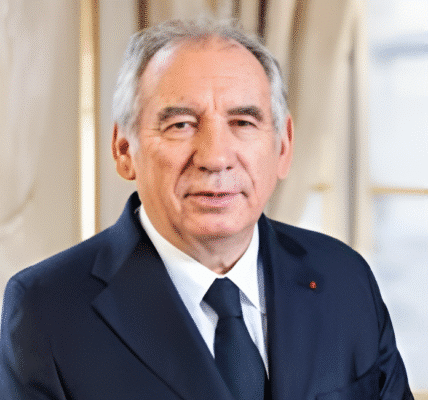Eli Lilly and Company: A Legacy of Innovation and Commitment in Pharmaceuticals

Eli Lilly and Company, founded in 1876, is a prominent global pharmaceutical firm known for its innovative medications and commitment to improving healthcare. From pioneering insulin production to developing groundbreaking treatments like Prozac and Zyprexa, Lilly has significantly impacted modern medicine. The company emphasizes research and development, community engagement, and ethical practices. Despite facing controversies over drug pricing and marketing, Lilly remains a leader in the pharmaceutical industry, dedicated to advancing health globally.
Founding and Early Years
Eli Lilly and Company was founded in 1876 by Colonel Eli Lilly, a pharmaceutical chemist and Civil War veteran. Disillusioned with the poorly made and ineffective medicines of his time, Lilly established the company in Indianapolis, Indiana, with a commitment to creating high-quality, reliable pharmaceuticals. The company’s first major success came with the production of gelatin-coated pills, which improved the stability and accuracy of dosage. Early on, Lilly’s commitment to scientific rigor and innovation set the foundation for what would become one of the world’s leading pharmaceutical companies.
Innovations in Pharmaceuticals
From its inception, Eli Lilly and Company focused on advancing pharmaceutical research and developing new medications. The company was one of the first to establish a dedicated research laboratory, where it conducted pioneering work in pharmaceuticals. This dedication to innovation led to several breakthroughs, including the mass production of insulin in the 1920s, which revolutionized diabetes treatment. Lilly was also instrumental in the development of penicillin, an antibiotic that helped save countless lives during and after World War II. The company’s forward-thinking approach ensured its place at the forefront of medical advancements.
Key Drug Discoveries
Over the decades, Eli Lilly and Company has been responsible for some of the most significant drug discoveries in medical history. These include the development of insulin, the introduction of Prozac (fluoxetine), a breakthrough antidepressant, and Zyprexa (olanzapine), used to treat schizophrenia and bipolar disorder. Each of these drugs not only improved patient outcomes but also reshaped the landscape of pharmaceutical therapy. Methadone, introduced for pain relief and opioid addiction treatment, and the barbiturate Secobarbital also contributed to the company’s growing influence in various therapeutic areas.
Corporate Leadership and Evolution
Eli Lilly and Company remained under the leadership of the Lilly family for three generations, ensuring continuity of vision and values. However, in 1944, the company began its transition to non-family management, marking a significant shift in its corporate structure. Leaders such as Eugene N. Beesley, Richard Wood, and later, Sidney Taurel and John C. Lechleiter, steered the company through periods of rapid expansion, challenges, and global growth. Under their leadership, Lilly became a global powerhouse, with a strong focus on both profitability and corporate social responsibility.
Community Engagement and Philanthropy
The Lilly family, along with Eli Lilly and Company, has a long history of philanthropy and community involvement. Col. Eli Lilly was involved in numerous civic initiatives, and his successors continued this tradition. The company’s most significant philanthropic contribution came with the establishment of the Lilly Endowment in 1937, which supports various cultural, educational, and religious causes. The company’s commitment to disaster relief, such as providing medicine during the 1906 San Francisco earthquake and World War II, further exemplified its dedication to serving society.
Controversies and Legal Challenges
Despite its many successes, Eli Lilly and Company has faced its share of controversies. The most notable include lawsuits related to the side effects of its antipsychotic drug Zyprexa and allegations of illegal marketing practices. The company also came under scrutiny for its pricing of insulin, which led to public backlash and legal challenges. Lilly has consistently responded to these controversies with settlements, corporate reforms, and efforts to rebuild its reputation, though these legal issues have left a mark on its public image.
Insulin Pricing and Public Scrutiny
As one of the first companies to mass-produce insulin, Eli Lilly played a crucial role in diabetes management. However, in recent years, the company has been criticized for the steep rise in insulin prices, which made the drug unaffordable for many patients. This issue gained significant attention in 2019 when lawmakers began investigating the reasons behind the price hikes. In response to public outcry, Eli Lilly announced measures to lower the out-of-pocket cost of insulin for some patients, though the issue remains a point of contention for the company.
Global Expansion and Market Presence
Starting from its Indianapolis headquarters, Eli Lilly and Company has grown into a global pharmaceutical giant. With operations in over 120 countries and a strong presence in key international markets, Lilly has established itself as a leader in the global healthcare industry. Strategic partnerships, acquisitions, and a strong focus on expanding its product portfolio in emerging markets have been essential to its international growth. As the demand for pharmaceuticals continues to rise globally, Eli Lilly’s presence ensures it remains a key player in the industry.
Commitment to Research and Development
At the heart of Eli Lilly and Company’s success is its unwavering commitment to research and development (R&D). The company invests billions of dollars annually in its R&D efforts, focusing on discovering new therapies for a range of conditions, from diabetes and cancer to autoimmune disorders. Lilly’s investment in cutting-edge technologies, such as biologics and gene therapies, underscores its dedication to staying at the forefront of medical innovation. This commitment to R&D ensures that Lilly continues to develop life-saving medications while exploring new therapeutic avenues.
Future Directions and Vision
Looking to the future, Eli Lilly and Company aims to continue its leadership in pharmaceuticals by focusing on personalized medicine, biotechnology, and treatments for unmet medical needs. The company is heavily investing in next-generation drug therapies and leveraging advancements in digital health and data analytics to improve patient outcomes. Lilly also continues to prioritize corporate responsibility, aiming for a balance between profitability and its contributions to society. With a legacy of innovation and a vision for future growth, Eli Lilly is well-positioned to remain a pivotal player in the healthcare landscape for decades to come.



































